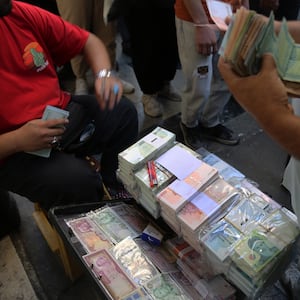Business
UN Reinstates Sanctions on Iran Following Failed Nuclear Talks

Widespread sanctions imposed by the United Nations on Iran have been reinstated for the first time in a decade, following unsuccessful nuclear negotiations with Western powers. The sanctions come in the wake of military actions by Israel and the United States, which included bombings targeting Iran’s nuclear capabilities.
The renewed sanctions specifically prohibit all dealings related to Tehran’s nuclear and ballistic missile programs. Analysts indicate that these measures will likely exacerbate Iran’s already struggling economy, which has faced numerous challenges in recent years.
US Secretary of State Marco Rubio emphasized that the diplomatic efforts are not concluded. He urged Tehran to engage in “direct talks, held in good faith” and called on UN member states to implement the sanctions “immediately.” Rubio highlighted the goal of these sanctions, stating they are intended to “pressure Iran’s leaders to do what is right for their nation and best for the safety of the world.”
Impact of Renewed Sanctions
The sanctions, which include restrictions on trade and investment related to Iran’s military capabilities, are expected to have far-reaching consequences. Iran’s economy, already grappling with high inflation and reduced oil exports, may face further isolation from international markets. The sanctions could hinder Iran’s ability to procure necessary materials and technology for its nuclear and missile development programs.
Diplomats from both Europe and the US have reiterated the importance of maintaining dialogue. They stress that despite the sanctions, a diplomatic resolution remains the ideal path forward. “We have not closed the door to negotiations,” said a senior European diplomat, highlighting the ongoing commitment to finding a peaceful solution.
Geopolitical Repercussions
The reinstatement of sanctions could also have significant geopolitical implications. Iran’s response to the sanctions and the diplomatic overtures from the West will be closely monitored by regional allies and adversaries alike. The situation could escalate tensions in the Middle East, particularly with nations like Israel, which remains vigilant regarding Iran’s military advancements.
As the international community watches closely, the next steps taken by both Iran and Western powers will be crucial in shaping the future of nuclear discussions and regional stability. The hope among diplomats is that constructive dialogue can replace the cycle of sanctions and military actions, paving the way for a more stable and peaceful environment in the region.
In conclusion, the return of UN sanctions against Iran marks a significant moment in international relations, highlighting the complexities of diplomacy in nuclear proliferation efforts. The focus now shifts to how both sides will navigate this renewed conflict and the potential for future negotiations.
-

 World4 months ago
World4 months agoTest Your Knowledge: Take the Herald’s Afternoon Quiz Today
-

 Sports4 months ago
Sports4 months agoPM Faces Backlash from Fans During Netball Trophy Ceremony
-

 Lifestyle4 months ago
Lifestyle4 months agoDunedin Designers Win Top Award at Hokonui Fashion Event
-

 Entertainment5 months ago
Entertainment5 months agoExperience the Excitement of ‘Chief of War’ in Oʻahu
-

 Sports4 months ago
Sports4 months agoLiam Lawson Launches New Era for Racing Bulls with Strong Start
-

 World5 months ago
World5 months agoCoalition Forms to Preserve Māori Wards in Hawke’s Bay
-

 Health4 months ago
Health4 months agoWalking Faster Offers Major Health Benefits for Older Adults
-

 Lifestyle4 months ago
Lifestyle4 months agoDisney Fan Reveals Dress Code Tips for Park Visitors
-

 Politics4 months ago
Politics4 months agoScots Rally with Humor and Music to Protest Trump’s Visit
-

 Top Stories5 months ago
Top Stories5 months agoUK and India Finalize Trade Deal to Boost Economic Ties
-

 Health2 months ago
Health2 months agoRadio Host Jay-Jay Feeney’s Partner Secures Visa to Stay in NZ
-

 World5 months ago
World5 months agoHuntly Begins Water Pipe Flushing to Resolve Brown Water Issue









